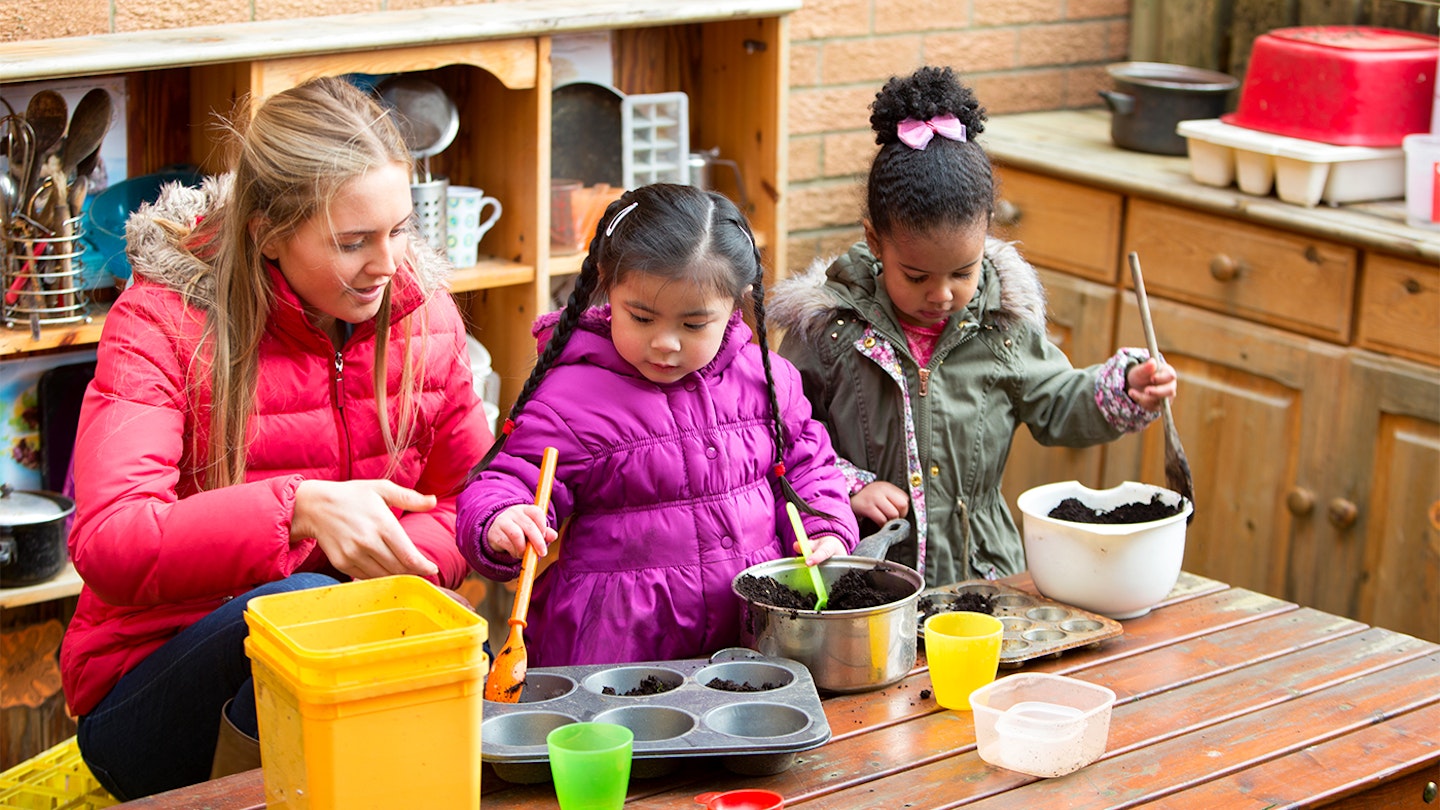Not only is it one of the biggest decisions you'll have to make as a parent, but starting nursery is a huge milestone for your little one and a big step for their social development. Similar to the process of applying to primary school, and appealing if you don't get the offer you hoped for, figuring out how to apply for nursery places for 3 year olds can be complicated, and it can be hard to know when to start.
On top of that, nursery care isn't free, so you have to spend time working out how many hours of Government funded nursery care you are eligible for, as this may affect how many hours you enrol your tot for.
To guide you through the process, we've broken down everything you need to know from the application process to financing and when to apply for nursery.
When to apply for nursery places for 3 year olds
You can apply from when your child is 2 years and 36 weeks old.
For children turning three between September 1 - December 31
It's recommended you apply for nursery between October 15 to November 30. This should mean your little one is able to start nursery from January 1.
For children turning three between January 1 to March 31
It's recommended you apply for nursery between January 15 to February 28. This means they can start nursery from April 1.
For children turning three between April 1 and August 31
It's recommended that you should apply for nursery between June 15 to July 31. They should then be able to start nursery from September 1.
How to apply for nursery places for 3 year olds
You'll want to start by finding the nursery you want to send your little one to. You'll have no doubt already spotted a few nurseries in your local area or have heard things from fellow mum and dad friends. If you're struggling to find options, it's a good idea to head to the Government website to find a nursery near you or have a google search.
DayNurseries.co.uk may also be helpful in providing real parent reviews and various nursery options for you to consider. You may also want a good look around a few before you decide. Be sure to read reviews, ask about fees, what food your tot will be served and how many children are already enrolled.
Once you've found the right nursery for your little one, enquire with them via telephone, email or through their website to get the ball rolling.
Nursery funding
You may be eligible for 30 hours of free childcare (this includes nursery schools as well as childminder care) per week for 38 weeks during school term time. If you use fewer than 30 hours per week, you may be eligible for up to 52 weeks.
You can apply for your 30 hours of free childcare on the Government website.
You are eligible for 30 hours of free childcare per week if you meet the following criteria:
• You're in work, on leave from work or on maternity or paternity leave
• If one parent works and the other claims Incapacity Benefit, Severe Disablement Allowance, Carer’s Allowance or contribution-based Employment and Support Allowance.
• If you and your partner (if you have one) must each expect to earn national minimum wage over the next three months.
To claim you must also have a National Insurance number.
Before claiming this, it's worth checking on the Government website if you'll be better off as financial help with childcare affect how much you get in tax credits. Furthermore, if you claim Universal Credit, you can also claim back some of your childcare costs.
Once you've applied for your funding, you'll be given a code. This code will then need to be given to your childcare provider to claim the free childcare.
Every three months, these details need to be reconfirmed to make sure all the information is still up to date so make sure you remember to login to your account and update your information.
Lorna White is the Senior Digital Writer for Mother&Baby. After running the Yours magazine website, specialising in content about caring for kids and grandchildren, Lorna brought her expertise to Mother&Baby in 2020. She has a keen interest in a range of topics surrounding all things motherhood and has a wide range of experienced medical experts and professionals at her fingertips.
